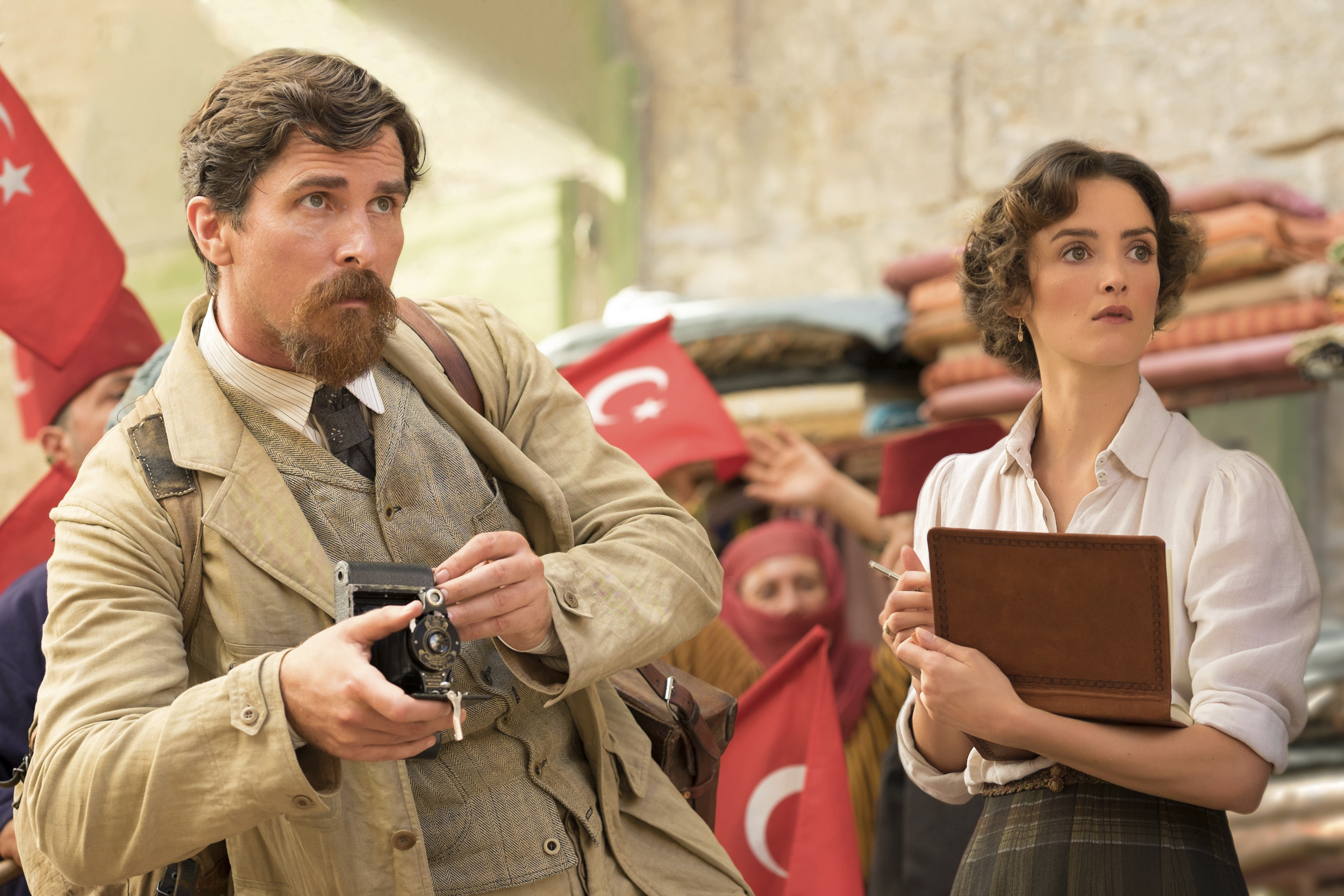New York (AP) – “The Promise,” the grandest big-screen portrayal ever made about the mass killings of Armenians during World War I, has been rated by more than 111,300 people on IMDb — a remarkable total considering it doesn’t open in theaters until the end of the month and has thus far been screened only a handful of times publicly.

The passionate reaction is because “The Promise,” a $100-million movie starring Oscar Isaac and Christian Bale, has provoked those who deny that 1.5 million Armenians were massacred between 1915 and 1923 by the Ottoman Empire or that the deaths of Armenians were the result of a policy of genocide. Thousands, many of them in Turkey, have flocked to IMDb to rate the film poorly, sight unseen. Though many countries and most historians call the mass killings genocide, Turkey has aggressively refused that label.
Yet that wasn’t the most audacious sabotage of “The Promise,” a passion project of the late billionaire investor and former MGM owner Kirk Kerkorian.
In March, just a few weeks before “The Promise” was to open, a curiously similar-looking film called “The Ottoman Lieutenant” appeared. Another sweeping romance set during the same era and with a few stars of its own, including Ben Kingsley and Josh Hartnett, “The Ottoman Lieutenant” seemed designed to be confused with “The Promise.” But it was made by Turkish producers and instead broadcast Turkey’s version of the events — that the Armenians were merely collateral damage in World War I. It was the Turkish knockoff version of “The Promise,” minus the genocide.
“It was like a reverse mirror image of us,” said Terry George, director and co-writer of “The Promise.” George, the Irish filmmaker, has some experience in navigating the sensitivities around genocide having previously written and directed 2004’s “Hotel Rwanda,” about the early ’90s Rwandan genocide.
George bought a ticket to see it. “Basically the argument is the Turkish government’s argument, that there was an uprising and it was bad and we had to move these people out of the war zone — which, if applied to the Nazis in Poland would be: ‘Oh, there was an uprising in the Warsaw Ghetto and we need to move these Jews out of the war zone,'” says George. “The film is remarkably similar in terms of structure and look, even.”
The nascent production company behind “The Ottoman Lieutenant,” Eastern Sunrise Productions, did not respond to queries for this article. Critics lambasted the film as “revisionist history” that “glosses over genocide.” Salon wondered , “What is Sir Ben Kingsley doing in ‘The Ottoman Lieutenant?'”
The killings of up to 1.5 million Armenians by Ottoman Turks around the time of World War I is widely viewed by genocide scholars as the first genocide of the 20th century. Turkey, however, denies that the deaths constituted genocide, saying the toll has been inflated, and that those killed were victims of war and civil unrest.
While the creation of a rival historical drama is fairly unprecedented, Armenians have a long history of roadblocks in Hollywood. The first film to chronicle the genocide was a 1919 silent called “Ravished Armenia.” In the mid ’30s, MGM began pre-production on an adaptation of Franz Werfel’s “The Forty Days of Musa Dagh,” with Clark Gable to star. But under pressure from the Turkish government, it was scuttled.
Elia Kazan’s “America America” (1963), an immigrant’s odyssey modeled after Kazan’s family’s own experience, began with persecution of Armenians and Greeks. But the films to most capture Armenian persecution have been made outside Hollywood, by international filmmakers like Atom Egoyan (2002’s “Ararat”) and Fatih Akin (2014’s “The Cut”).
“The Promise,” bankrolled by the Kerkorian Foundation, was also made totally outside the studio system. Its makers are donating all proceeds to nonprofit organizations, and intend to use the PG-13-rated film as an education tool in schools. Its release has been timed to the April 24 anniversary of the genocide.
“One of the big things for us was taking the darkness of the Armenian genocide and moving it into the light,” said producer Eric Esrailian, a Los Angeles physician and friend to Kerkorian. “Genocide denial is one phase of genocide. The way systematic denial has tried to crush it and bury the truth for so many years, it’s amazing to see it all come to light now.”




